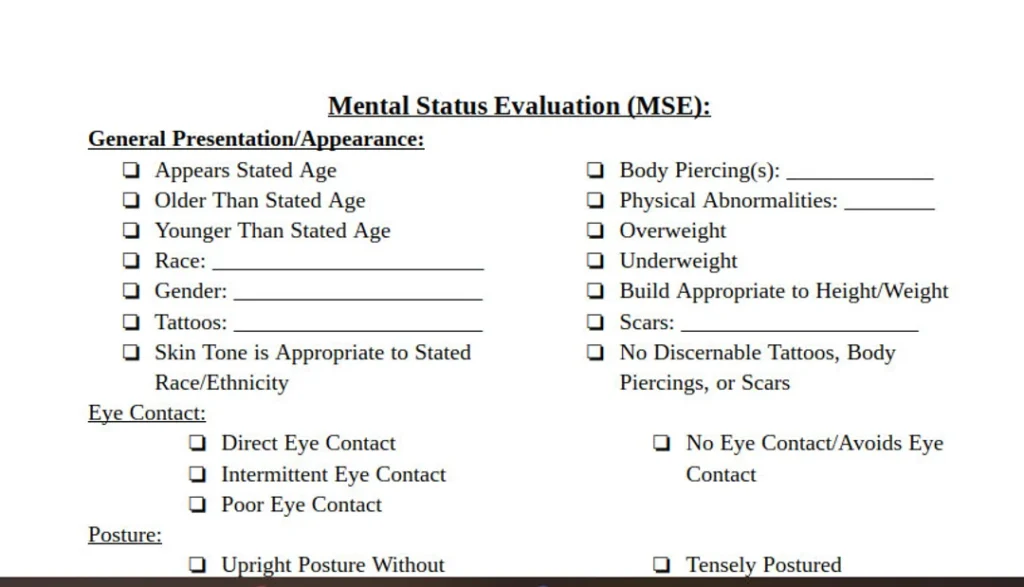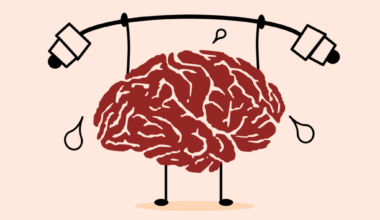Mental health examinations are essential for understanding our emotional and psychological well-being. However, they often come with a sense of uncertainty or even anxiety. If you’re preparing for one, it’s completely normal to have questions about what to expect and how to approach the process. I know from experience that it can feel overwhelming, especially if it’s your first time. But trust me, knowing what to expect can make all the difference.
Having gone through the process myself and helped others prepare, I can assure you that with the right information, you’ll feel more in control. In this article, I’ll walk you through everything you should know before a mental health examination, from what it entails to how you can prepare mentally, so that you can approach the process with clarity and confidence.
Key Takeaways
- A mental health examination assesses your emotional, psychological, and behavioral well-being to diagnose conditions and plan treatment.
- Be honest and open to ensure accurate results and the best care.
- Expect a safe, non-judgmental space where professionals are there to help.
- The exam may include interviews, questionnaires, and observations.
- Feeling nervous is normal, but it’s an important step in improving your mental health.
- Your information is confidential and protected by law.
- Treatment recommendations may follow, such as therapy or medication.
- Don’t hesitate to ask questions if something is unclear.
- Practice self-care and seek support if you feel overwhelmed.
Mental Health Examination

A mental health examination is a key aspect of our emotional and psychological health. If you’re preparing for one, it’s normal to have questions about what to expect. However, in order for you to do that, you’ll need to fully understand what a mental health examination is.
While it may seem intimidating at first, it’s simply an evaluation designed to assess your emotional, psychological, and social well-being. This process may involve answering questions, completing surveys, or engaging in discussions with a professional. Consequently, it’s important to approach it with an open mind, as the goal is to gain a deeper understanding of your mental health, not to judge or label you.
Moreover, it’s essential to know how to mentally prepare for the examination. Many people find it helpful to reflect on their feelings, experiences, and any specific challenges they’ve been facing. This self-reflection will help you answer questions more thoughtfully and provide the examiner with a clearer picture of your mental health. Additionally, it’s a good idea to prepare any questions you might have about the process, as this will allow you to feel more involved and engaged during the session.
Now, let’s address some common concerns. Many people worry about how their answers will be perceived or whether they’ll be judged. Nevertheless, it’s important to remember that mental health professionals are trained to approach the examination with empathy and without judgment. They’re there to help you understand your mental health better, not to criticize or label you. As a result, being honest and open during the exam is key to receiving the support you need.
Mental Health Examination Template

When I had my first mental health examination, I remember feeling a mix of curiosity and nervousness. I wasn’t sure what to expect or how much I needed to share. However, once the session began and the professional guided me through structured questions, I realized that the process wasn’t as intimidating as I had imagined. The structured format actually made it easier to express my thoughts, and I understood that each question served a purpose in helping me gain clarity about my mental well-being. That’s the value of a Mental Health Examination Template. It provides a clear framework, ensuring that no crucial aspects of your mental health are overlooked. Below is an example.
Example of a Mental Health Examination Template
A mental health examination template generally follows a structured format to assess different aspects of an individual’s psychological well-being. Below is a simplified example of what a standard template might look like:
#1. General Information
- Full Name:
- Date of Birth:
- Gender:
- Occupation:
- Date of Examination:
#2. Presenting Problem & Chief Complaint
- What brings you in for this examination today?
- How long have you been experiencing these concerns?
- Have there been any recent life events that might have contributed to your current mental state?
#3. Medical & Psychiatric History
- Have you ever been diagnosed with a mental health condition?
- Are you currently taking any medications?
- Have you experienced any major medical conditions, head injuries, or surgeries?
#4. Emotional & Behavioral Assessment
- Have you experienced persistent sadness, anxiety, or mood swings?
- How do you typically cope with stress?
- Any history of self-harm or suicidal thoughts?
#5. Cognitive & Perceptual Functioning
- Do you experience memory issues or difficulty concentrating?
- Have you ever had hallucinations or unusual thoughts?
#6. Social & Environmental Factors
- What is your relationship like with family and friends?
- Do you feel supported in your social circle?
- Any major work, school, or financial stressors?
#7. Lifestyle & Coping Strategies
- How would you describe your sleep patterns?
- Do you engage in regular physical activity?
- What are your usual ways of coping with stress or emotional distress?
#8. Examiner’s Observations & Summary
- General demeanor (e.g., cooperative, anxious, withdrawn).
- Thought patterns and coherence.
- Mood and emotional stability.
- Recommendations and next steps.
Mental Health Examination Questions

If you’ve never taken a mental health examination before, you might be wondering what kind of questions to expect. It’s completely normal to feel a bit nervous about it—I’ve been there too. But here’s the good news: these questions aren’t meant to trick you or make you feel judged. Instead, they’re designed to help mental health professionals understand your thoughts, emotions, and overall well-being.
Generally, the questions will cover different aspects of your mental health, including your mood, stress levels, coping mechanisms, and daily life experiences. For instance, you might be asked things like:
- How have you been feeling emotionally over the past few weeks?
- Do you often experience anxiety or overwhelming stress?
- Have you noticed any changes in your sleep patterns?
- How would you describe your energy levels throughout the day?
- Do you struggle with feelings of sadness, hopelessness, or irritability?
- Are there any recent events that have impacted your mental health?
In addition to these, some examinations may include cognitive assessments, where you’re asked about memory, focus, or decision-making abilities. You might also be asked about your relationships, work-life balance, or any coping strategies you use to deal with stress.
It’s important to answer these questions as honestly as possible. There’s no right or wrong answer. Rather, the goal is to get a clearer picture of your mental health so you can receive the right support.
Components Of Mental Health Examination
A mental health examination is a comprehensive process that helps professionals assess your emotional, psychological, and social well-being. It’s designed to understand your mental state and provide insights into areas where you might need support. While it might sound overwhelming, breaking it down into its components can help you feel more prepared.
One key part of the mental health examination is the clinical interview, where a mental health professional asks questions about your mood, thoughts, feelings, and behaviors. This is where you’ll get to talk openly about your mental health struggles, and the professional will listen to understand your experiences. Questions could range from how you’re feeling emotionally to any noticeable changes in your daily activities or relationships.
Another important component is the mental status examination (MSE), which evaluates your current cognitive functioning. This includes assessing your memory, attention, speech, and overall thought processes. The MSE helps determine whether you’re experiencing conditions like anxiety, depression, or cognitive disorders.
Meanwhile, there’s psychological testing, which can involve completing questionnaires or surveys. These tools are used to assess specific mental health issues, such as depression, anxiety, or PTSD. These tests often provide a structured way for the professional to evaluate your symptoms.
Sometimes, the mental health professional will also review your medical history, because physical health problems can sometimes contribute to mental health symptoms. They may ask about medications you’re taking, any previous treatments, and any family history of mental health issues.
In essence, a mental health exam might also involve observing your behavior and social interactions. The professional might note your body language, mood, or how you interact with them during the session.
Mental Health Examination Form

A mental health examination form is a tool used by mental health professionals to gather essential information about your psychological well-being. This form typically includes a series of questions that help assess your emotional, cognitive, and social functioning, allowing the examiner to better understand your mental health status. While each form may vary based on the professional or the specific examination, there are a few common elements you can expect to find. They are;
- Personal Information.
- Medical and Psychiatric History.
- Current Symptoms.
- Behavioral Observations.
- Risk Assessment.
- Cognitive and Functional Assessment.
Mental Health Examination Online
Online mental health examinations are becoming an increasingly popular option for those seeking support, especially for those who find it difficult to access in-person care. These virtual evaluations often include a series of questions, surveys, and sometimes live sessions with a licensed mental health professional.
I remember feeling unsure about online mental health exams at first, wondering if they’d be as effective as the traditional in-person approach. But after trying it, I realized how convenient and empowering it could be. It allowed me to take the first step toward understanding my mental health in a comfortable, private setting. If you’re considering an online mental health examination, it’s a great option for receiving support in a more accessible and less intimidating way, with the flexibility to fit your schedule. Below is a list of platforms that offer mental health examinations online;
- Mental Health America (MHA) Screening.
- Calmerry.
- Talkspace.
- Mind Diagnostics.
- M3 Checklist (WhatsMyM3) – Available on app stores.
- MindSpot Clinic (for Australia).
What Are the 10 Steps of the Mental State Exam?
The Mental State Examination (MSE) is a key tool used by mental health professionals to assess an individual’s psychological functioning. It helps them understand a person’s current mental state and guides treatment decisions. The MSE is typically broken down into ten key components. Here’s an overview of the ten steps involved:
#1. Appearance
This step involves evaluating the person’s physical appearance, including their dress, grooming, and hygiene. It provides insight into their emotional state and whether they might be neglecting their personal care.
#2. Behavior
The clinician observes the individual’s movements, mannerisms, and overall behavior. This can indicate signs of restlessness, agitation, or any abnormal physical movements, such as tics or tremors.
#3. Speech
This involves assessing the person’s speech for rate, volume, tone, and coherence. Are they speaking too quickly or too slowly? Are they rambling or having difficulty expressing themselves?
#4. Mood and Affect
The clinician will inquire about the person’s mood (how they feel) and observe their affect (the outward expression of their feelings). Are they expressing happiness, sadness, or irritability? Is their emotional response appropriate for the situation?
#5. Thought Process
This step involves examining how the individual thinks. Are their thoughts coherent and logical? A mental health professional will look for signs of disorganized thinking or flight of ideas, which may indicate a mental health issue.
#6. Thought Content
Here, the examiner explores the content of the person’s thoughts. Are they experiencing delusions, paranoia, or intrusive thoughts? It helps identify any signs of psychosis or other disorders.
#7. Perception
This step assesses whether the individual is experiencing hallucinations or other disruptions in perception. Are they hearing voices, seeing things that aren’t there, or having any other sensory disturbances?
#8. Cognition
Cognitive function is evaluated by testing the person’s memory, attention, and ability to concentrate. The clinician may ask the person to remember a list of words or ask questions to test their short-term memory and attention span.
#9. Insight
Insight refers to the person’s awareness and understanding of their mental health. Do they recognize that they have a problem, and are they aware of the need for treatment?
#10. Judgment
This involves evaluating the individual’s decision-making skills and their ability to assess situations realistically. Are they able to make sound decisions, or are they acting impulsively or inappropriately due to mental health concerns?
What Are the 7 Types of Mental Disorders?
Mental disorders come in many shapes and sizes, affecting people in different ways. While each disorder is unique, they can generally be categorized into a few broad types. Understanding these types can be a helpful first step in recognizing mental health struggles, either for yourself or someone else. So here are the seven most common types of mental disorders:
- Anxiety Disorders.
- Mood Disorders.
- Obsessive-Compulsive and Related Disorders.
- Psychotic Disorders.
- Eating Disorders.
- Neurodevelopmental Disorders.
- Personality Disorders.
What Is the 5 P’s Mental Health Assessment?
When it comes to understanding mental health, the 5 P’s Mental Health Assessment is a helpful tool used by mental health professionals to assess a person’s condition more comprehensively. This framework looks at five key factors that contribute to mental health struggles and recovery. Here’s a breakdown of the 5 P’s:
- Presenting Problem
This is the reason why you’re seeking help. Whether it’s feelings of anxiety, depression, or a specific mental health concern, this is what brought you to the professional in the first place. - Predisposing Factors
These are the factors that make you more likely to develop mental health issues. Family history, past trauma, or genetic predispositions are examples of these factors that could have contributed to your mental health challenges. - Precipitating Factors
These are the triggers or events that may have sparked your current struggles. A sudden loss, stress, or a significant life change might have set things in motion. - Perpetuating Factors
These are the things that keep the cycle going, making it harder for you to get better. Maybe there are unhealthy coping mechanisms, ongoing stressors, or a lack of support that are preventing your healing. - Protective Factors
These are the things that help protect your mental health and make recovery possible. Support from loved ones, strong coping skills, or a sense of hope can all be protective factors that can make a big difference in your mental well-being.
Conclusion
To wrap it up, understanding the process of mental health examinations can help ease any anxiety. By knowing what to expect, the types of questions you might face, and how to mentally prepare, you can approach the evaluation with confidence. Remember, a mental health examination is an important step toward understanding your well-being and receiving the support you need.






